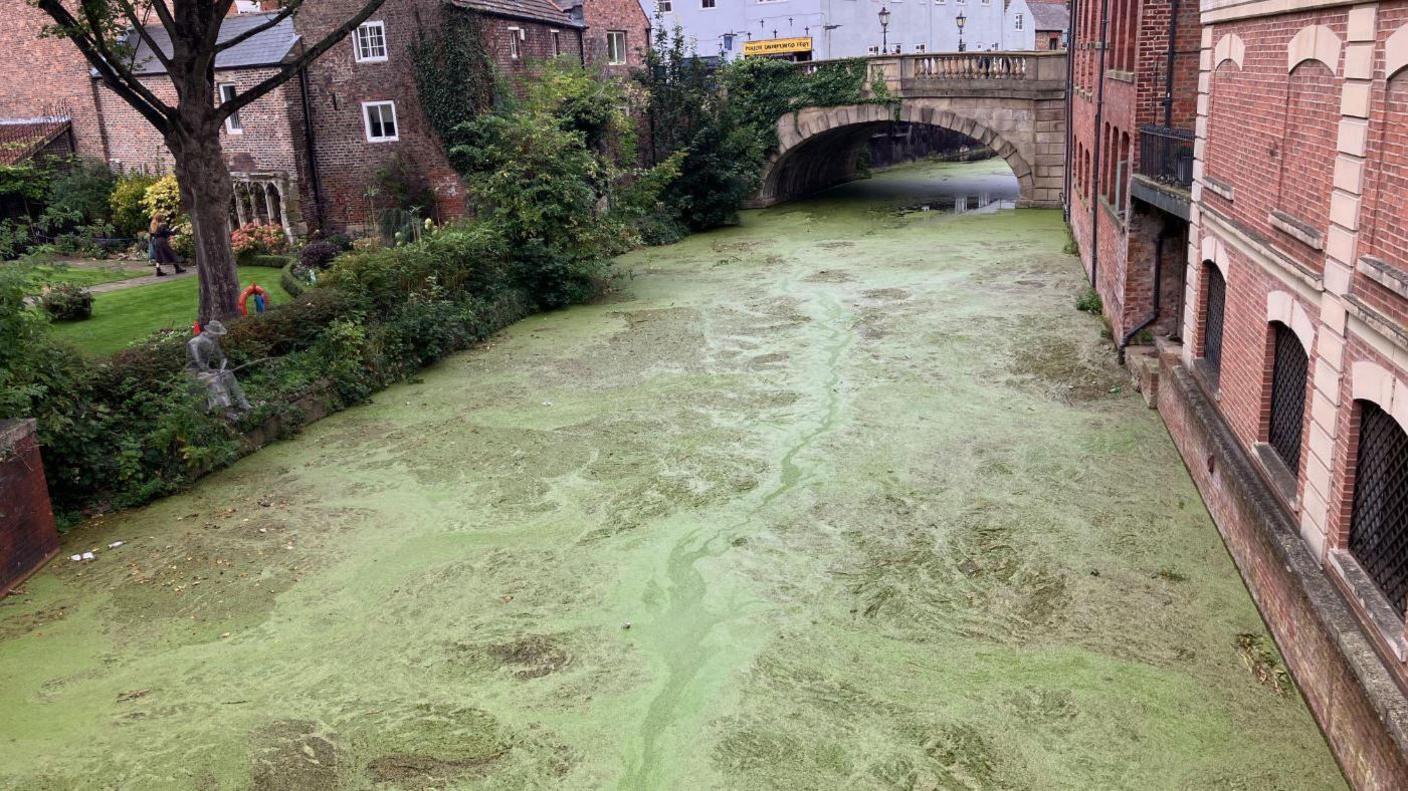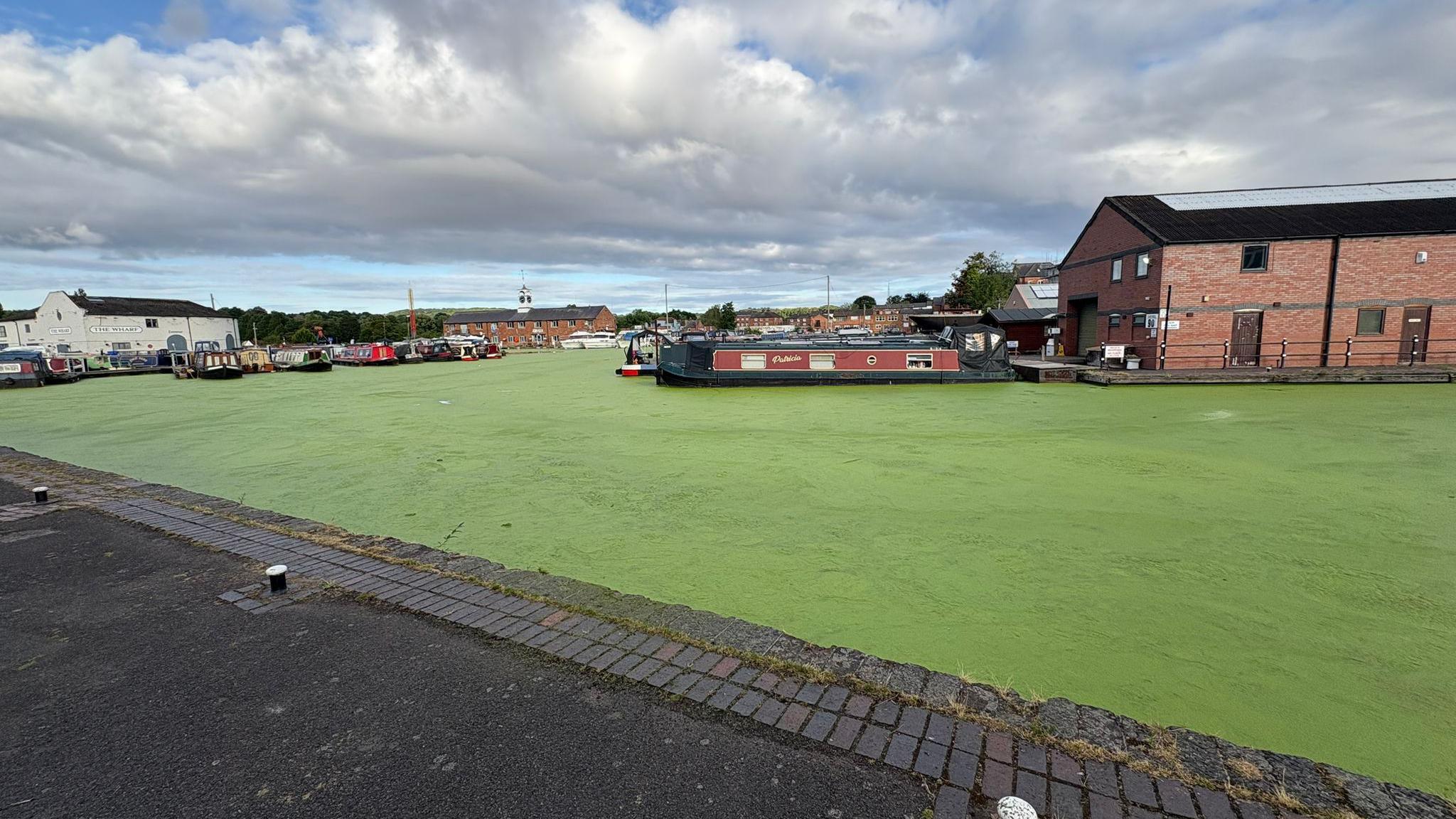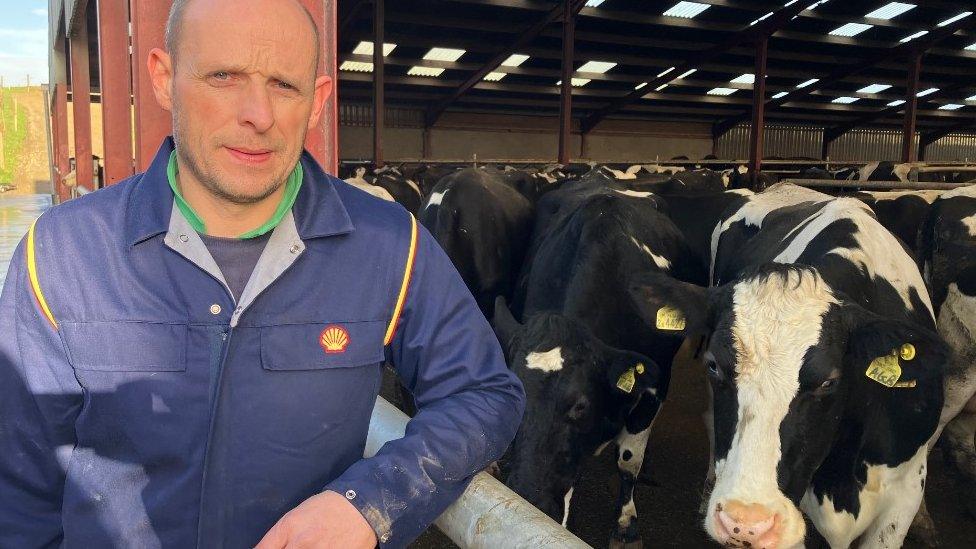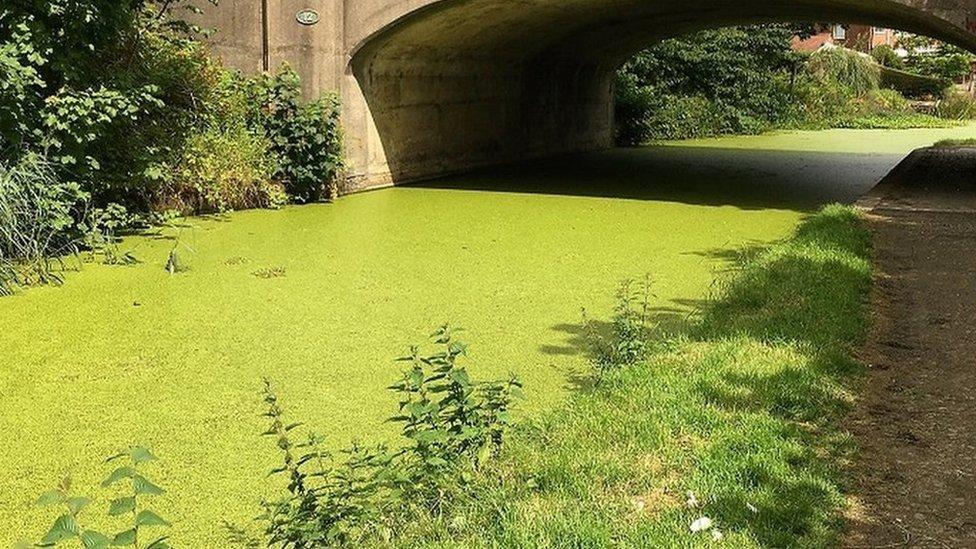Wildlife fears over river's duckweed 'pea soup'

The rapid growth of duckweed on York's River Foss has caused problems for wildlife
- Published
Concerns have been sparked over the build-up of duckweed in a city river after swans were seen struggling through the dense growth.
Part of the River Foss around the Fossgate area of York city centre has recently turned green thanks to the fast-growing and tiny free-floating aquatic plant.
The River Foss Society, a volunteer trust whose members help maintain the river, said the cause of the rapid growth was down to a hot, dry summer with little rainfall.
Tim Rane, from the society, said: "It is a bit of a challenge for the wildlife to get through that when it's all condensed together."
"This is a bit of a problem and litter floats on top and that causes public concern," Mr Rane said.
Two swans have been seen struggling to swim in the River Foss due to duckweed
According to the Royal Horticultural Society, duckweed species "form large mats that cover the water's surface".
The plants "grow and multiply rapidly in warm, nutrient-rich, still or slowly moving water", it stated.
People walking by the River Foss where the amount of duckweed was at its height said they were certainly worried about the effect it was having.
Student Ruby Reay said: "It's just not very pleasant because it's also got to affect the wildlife."
Ms Reay described the duckweed growth as "thick, almost phlegmy-looking".
Meanwhile, David Bayliss said: "It looks like a stagnant and mucky river. I wouldn't even fish in there."
Mr Bayliss' wife, Corrine, said: "It's not a flagship for York is it? It looks like pea soup."

Ruby Reay, a student in York, says the duckweed is "thick, almost phlegmy-looking"
Complaints have also been made about the smell of the river due to the duckweed growth.
Chris Harris, who said he worked close to the river, explained: "It's a bit like an 'off' washing machine sort of smell - like the drain of a washing machine."
Ms Reay described the odour as "very pungent and stale in the air".
According to the River Foss Society, its volunteers had been on the river on a boat to remove litter and to try and break up the duckweed in a bid to make it easier for wildlife to use the waterway as well as to reduce the smell.
Mr Rane said: "Sometimes it does get clogged up with a very thick amount of duckweed which then can't survive and it starts rotting down, which causes a bit of a smell.
"We were hoping during last Saturday's litter-pick to be able to move it around a little bit and get the flow going again. Whether that had much effect, I'm not sure."
Mr Rane added: "We just need a good bit of rain to move down and then the river will be back to normal again."
Get in touch
Tell us which stories we should cover in Yorkshire
Listen to highlights from North Yorkshire on BBC Sounds, catch up with the latest episode of Look North.
Related topics
More stories like this
- Published25 July

- Published30 December 2022

- Published7 August 2017
